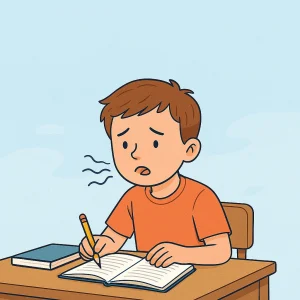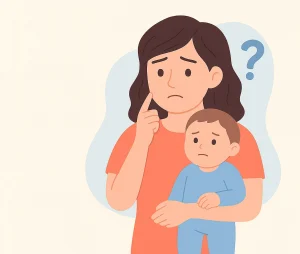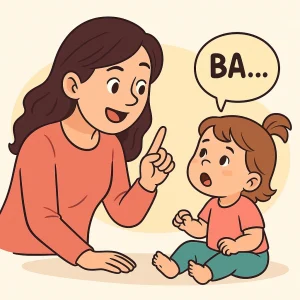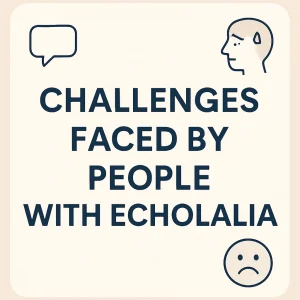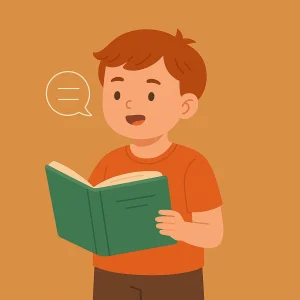Why isn’t My Toddler Responding to Their Name?
By Rajini D
Last Updated: April 28, 2025
If your toddler doesn’t always respond when you call their name, it’s natural to feel a wave of concern. You might start to wonder: Is it just a phase? Are they distracted? Or could it be something more?
First, take a deep breath — you’re not alone. Many parents go through this experience and ask the same important questions. It’s completely valid to feel unsure, especially when your child’s development doesn’t seem to match what you expected. The truth is, every child grows at their own pace. But it’s also helpful to know what’s typical at different ages, what signs might suggest a delay, and what you can do — both at home and with expert support.
Speech and Communication Milestones at 12–24 Months
During the toddler years, communication skills begin to blossom. Between 12 to 24 months, most children start showing signs that they’re understanding the world around them — and learning how to respond to it. These early milestones help lay the foundation for future language development.
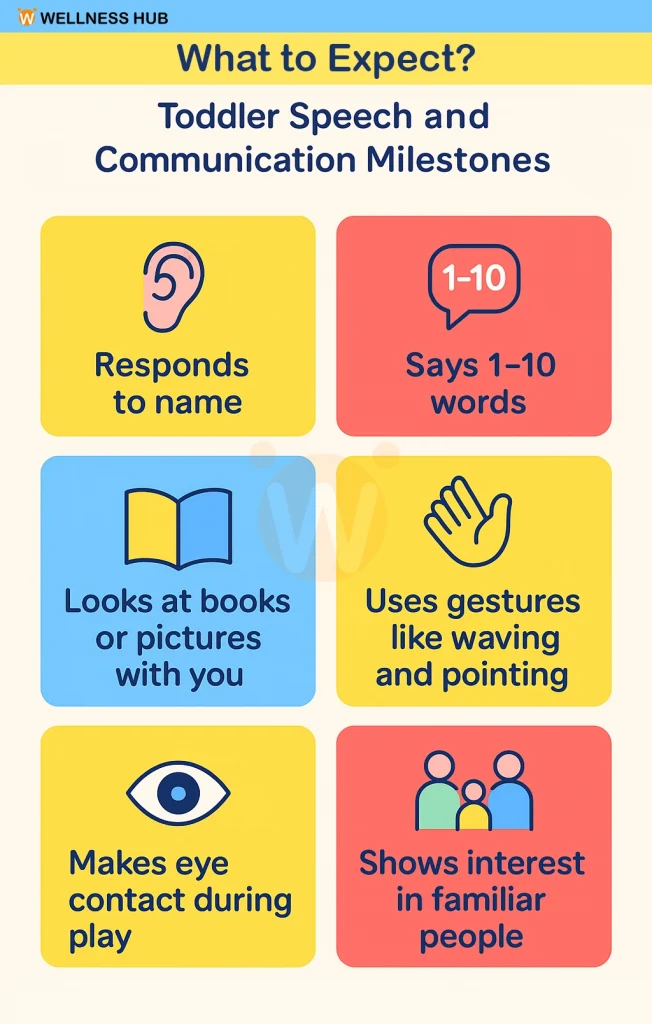
Here are some key speech and communication milestones you might expect during this stage:
- Responds to their name when called, especially in a quiet setting
- Babbles and starts using 1–10 clear words like “mama,” “ball,” or “bye”
- Follows simple instructions such as “Come here,” or “Give me the toy”
- Uses gestures to communicate — like pointing to objects or waving goodbye
- Shows interest in familiar people, responding with smiles or excitement
- Makes eye contact during play, mealtimes, or when sharing a moment
Red Flags That May Indicate a Delay
It’s completely natural for toddlers to develop at their own pace — some take off with words early, while others need a bit more time. But there are certain signs that may suggest your child could benefit from extra support.
Here are a few common red flags for speech delay in toddlers and early communication concerns to keep in mind:
Signs to Watch For:
| Developmental Area | What to Look For |
|---|---|
| Name Response | Doesn’t respond to their name consistently by 12 months |
| Early Sounds/Words | No babbling, cooing, or words by 15–18 months |
| Gestures & Expression | Rarely points, waves, or uses gestures to show wants or share interest |
| Eye Contact | Limited or no eye contact during play, feeding, or social interaction |
| Following Instructions | Doesn’t follow simple commands like “Come here” or “Give it to me” |
| Social Awareness | Seems distant or “in their own world,” even when others are trying to engage them |
How You Can Support Speech Development at Home
If you’re feeling unsure about your toddler’s speech progress, the good news is — you can start making a difference right at home. Small, simple changes in your daily routine can go a long way in building your child’s communication skills.
Here are a few parent-tested strategies to encourage speech development in toddlers:
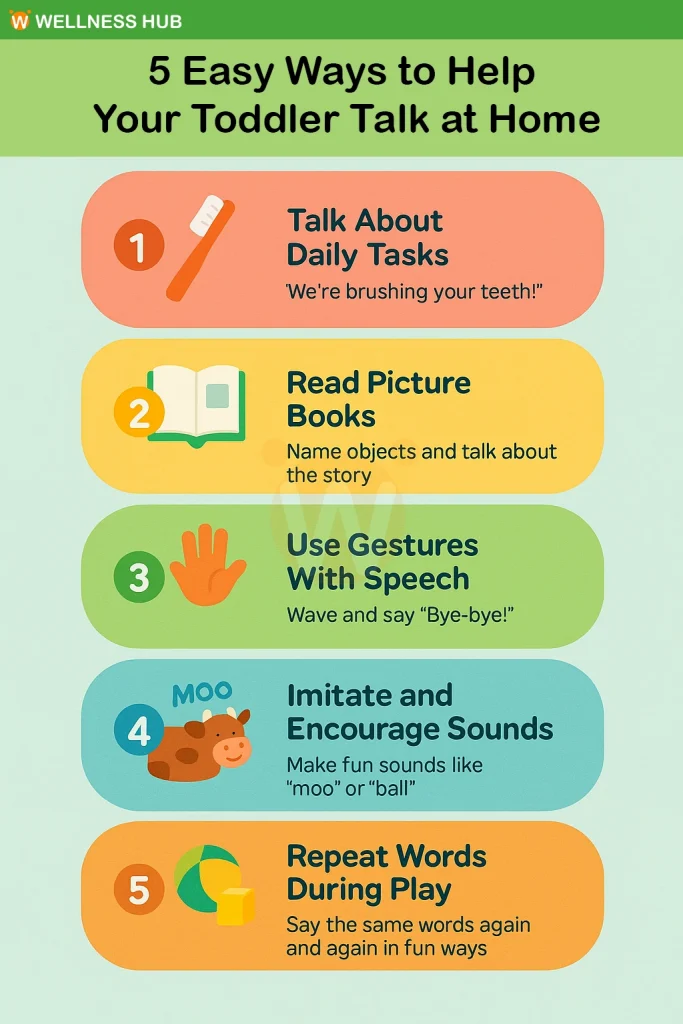
Everyday Tips to Boost Your Child’s Speech
- Narrate your day
Turn ordinary moments into learning opportunities. While dressing, say, “Now we’re putting on your socks!” During meals, label foods: “This is a banana. Yellow banana!” - Read picture books aloud
Choose colorful books with simple words. Point to pictures and name objects together. Pause to let your child respond, even if it’s just with a sound or gesture. - Use gestures and expressions
Combine words with actions — wave while saying “bye,” or nod when saying “yes.” This helps toddlers connect meaning to language, especially before they start speaking clearly. - Play turn-taking games
Simple games like peekaboo, rolling a ball, or taking turns with toys help children learn the back-and-forth rhythm of conversation. - Encourage imitation
Make silly sounds or facial expressions and see if your child copies you. Mimicking is a powerful way for toddlers to explore speech.
Every Child is Unique – Early Action Builds Confidence
It’s easy to compare your toddler to other kids — especially when it feels like everyone else’s child is already talking, waving, or answering to their name. But here’s the truth: every child develops at their own pace, and that’s completely normal.
Some kids say their first words early. Others focus on motor skills or observation before they’re ready to talk. These differences don’t always mean something is wrong — they’re just part of how wonderfully unique each child is.
That said, if you’ve noticed certain delays or behaviors that make you pause, your instincts matter. Reaching out for help isn’t overreacting — it’s proactive parenting. Research shows that early intervention for speech delay leads to better outcomes in communication, learning, and confidence later on.
Conclusion
If your toddler isn’t talking much or doesn’t respond to their name, you’re not alone — and there’s help. Early support can make a big difference in your child’s speech and confidence. At Wellness Hub, we offer expert-led online speech therapy for toddlers, free screenings, and friendly support for Indian families worldwide. You know your child best — and trusting your instincts is a strength. “You’re not alone — and we’re here to help your child thrive.” Start with a free consultation today and take the first step with confidence.
Frequently Asked Questions:
1. Is it normal if my toddler doesn’t respond to their name?
Sometimes toddlers are distracted, but if your child regularly doesn’t respond to their name by 12 months, it could be a sign of a speech or developmental delay. It’s worth discussing with a professional for peace of mind.
2. What are the early signs of a speech delay in toddlers?
Some common signs include not responding to their name, not using gestures like pointing or waving, no words by 15–18 months, and little to no eye contact. These may signal the need for early speech therapy.
3. At what age should a toddler start talking?
Most toddlers say their first words around 12 months and begin using 2–3 word phrases by 24 months. If you’re concerned your child is not talking yet, early support can help.
4. When should I worry about my child’s speech development?
If your child isn’t babbling by 12 months, has no words by 15–18 months, or doesn’t try to communicate at all, it’s a good idea to talk to a speech therapist.
5. What’s the difference between a late talker and a speech delay?
A late talker may start speaking later but catches up on their own. A child with a speech delay may need extra help to build their skills. A simple screening can help tell the difference.
6. Can not responding to name be a sign of autism?
Yes, it can be one possible sign — especially when combined with other behaviors like avoiding eye contact, not using gestures, or not playing with others. Early screening is helpful in understanding your child’s needs.
7. How can I help my toddler talk more at home?
You can help by talking often, using simple words, reading picture books, playing turn-taking games, and pointing to objects while naming them. These small steps support speech development in toddlers.
8. Is online speech therapy effective for young children?
Yes! Online therapy is flexible and parent-friendly. At Wellness Hub, licensed therapists work with you and your child using fun, interactive sessions designed for toddlers — all from the comfort of your home.
9. What tools can help me track my toddler’s speech milestones?
You can use a free speech and development checklist to track your child’s progress. Many parents also find simple apps or therapist-guided tools useful for noticing changes early.
10. Where can I get help if I’m worried about my child’s speech
You can start with a free consultation at Wellness Hub. Our team offers online speech therapy, expert screenings, and family-friendly support designed especially for Indian parents worldwide.
About the Author:
Rajini Darugupally
M.Sc., Speech-Language Pathologist (9+ years of experience)
Rajini is a passionate and dedicated Speech-Language Pathologist with over 9+ years of experience, specializing in both developmental speech and language disorders in children and rehabilitation in adults. Driven by a desire to empower each individual to find their voice, Rajini brings a wealth of experience and a warm, genuine approach to therapy. Currently, at Wellness Hub, she thrives in a team environment that values innovation, compassion, and achieving results for their clients.
Book your Free Consultation Today
Parent/Caregiver Info:
Client’s Details:
* Error Message
